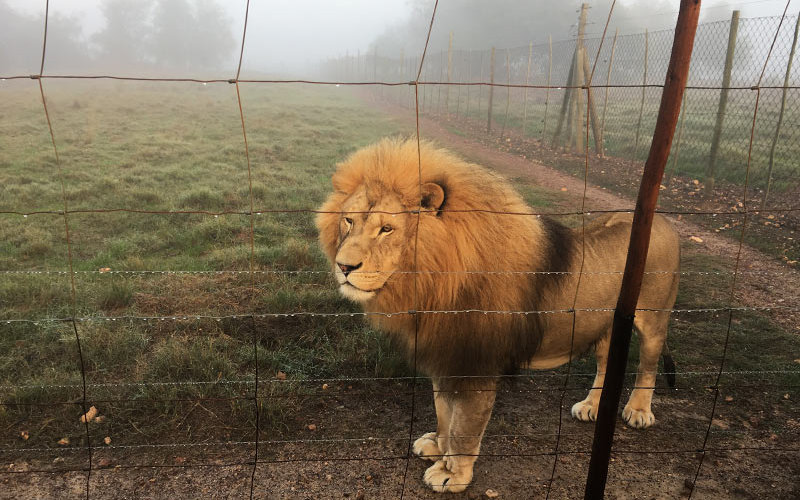
For the past six years, Jenna Voight has volunteered at Orange County animal shelters to gain insights into the field of animal justice.
When a Cal State Fullerton humanities course offered her the opportunity to learn about human-wildlife conflicts in South Africa, she packed her bags for a summer among lions, rhinos, baboons and more.
The criminal justice major, who aspires to become an animal control officer, says seeing so many other animals in their natural environment was a far cry from the typical cats, dogs and rabbits she works with.
“I was surprised to learn that the animal control issues we experience here in California might not be so different from other countries,” said Voight. “Whether it’s elephants in Africa or coyotes in Orange County, we need to keep examining the laws that govern how to co-exist with wildlife.”
Voight was one of 15 students who enrolled in a four-week course on “(Wild)Life and Culture in South Africa,” taught this past summer by Jarret Lovell, professor of criminal justice. The class focuses on such topics as the impact of human-wildlife conflicts on the local culture, as well as the debate surrounding the practice of international trophy hunting. Students also delve into discussions about the ivory and rhino horn trade bans, hunting conservation and international conservation aid.
“Students see firsthand the threats that confront wildlife, and they gain a better understanding of the complexity of conservation,” said Lovell. “They also learn about the dangers of ‘fake’ sanctuaries, which breed wild animals for the sole purpose of offering tourists a chance to touch, feed and interact with lions.”
In a service-learning component supported by CSUF’s Center for Internships and Community Engagement, the students provided 20 hours of service at Drakenstein Lion Park, a true sanctuary. While learning how the sanctuary prioritizes its animals’ needs, students helped to tear down a lion savannah encampment.
“Through our readings and assignments, we learned about canned hunting and captive breeding of lions and other predators,” said Gina Cash, a criminal justice major. “At times it was difficult to fully understand the purpose of those readings, until we literally saw the effects of captive breeding and animal abuse in person.
“This study abroad program has inspired me to do more research and to increase my knowledge on the subject of animal justice and human-wildlife conflicts,” added Cash, who currently is enrolled in Lovell’s “Animals, Law and Society” course.
Lovell says the students were so moved by the experience that they decided to adopt one of the rescued lions. “Their donation will support food and health expenses for a young lioness cub named Kala for an entire year,” he said.
For Voight, studying abroad brought to life many concepts she has learned in her criminal justice classes and exposed her to peers with different majors and backgrounds.
“Studying abroad makes you see things from a whole new perspective,” she said. “We all have different experiences, but we were able to contribute to conversations, ultimately developing friendships and a better understanding of people.”
The “(Wild)Life and Culture in South Africa” course will be offered again in summer 2018 as part of the Cape Town Study Abroad Program. Visit the Office of Study Abroad website for more information.